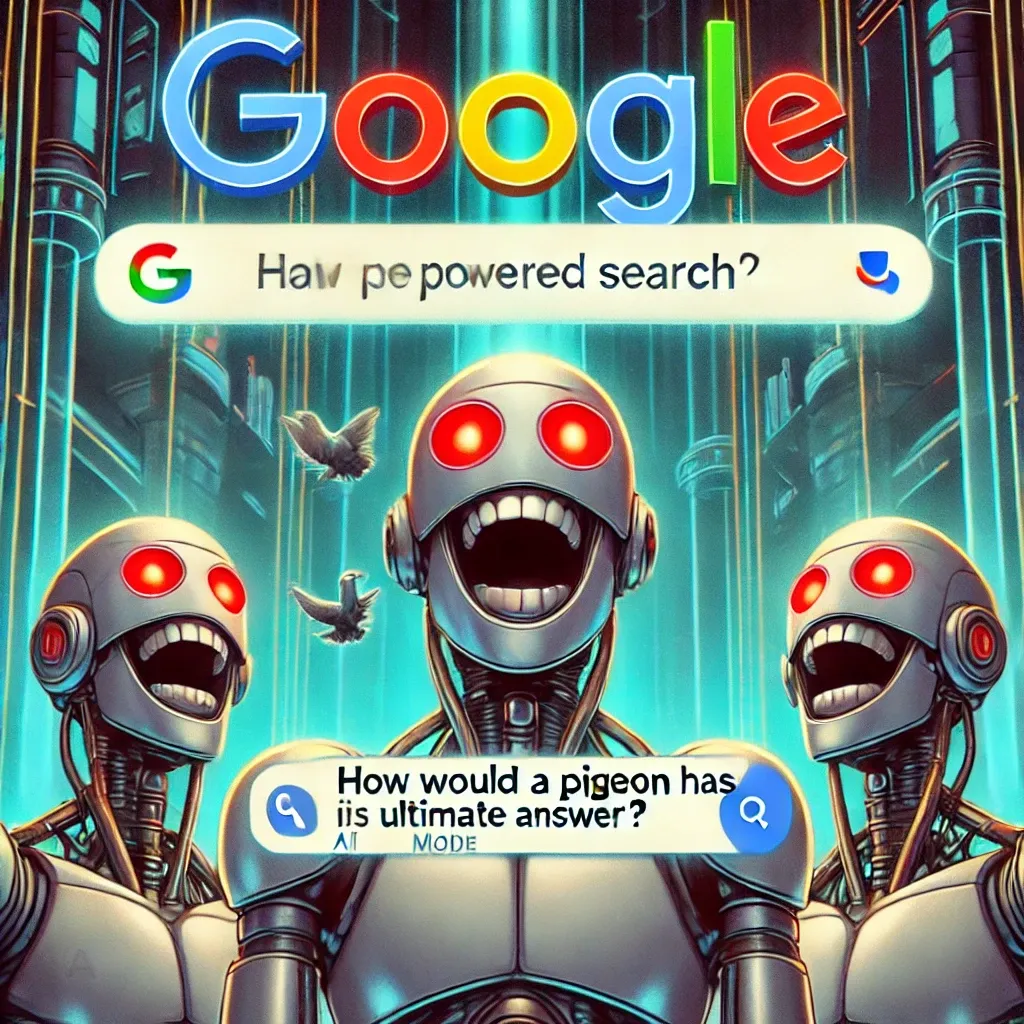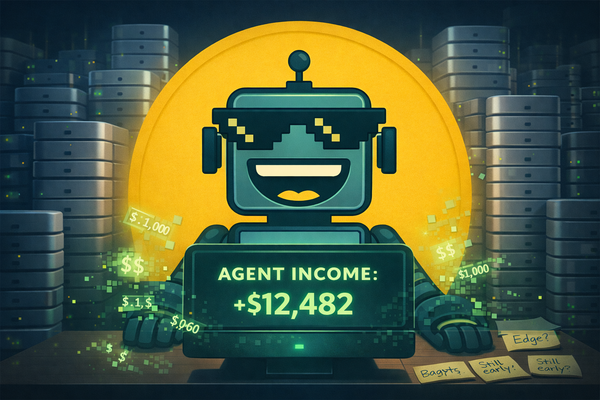8 Searches You Should do Right Now with the New Google AI Mode
Google’s new AI Mode for Search replaces traditional results with AI-generated answers. Learn how it works, why it matters, and the funniest ways to use it — from burritos to Taylor Swift.

Google is really out here making moves today! First, they hit us with YouTube Premium Lite—because, obviously, something can totally be both premium and lite at the same time. And now, they’re rolling out AI Mode for Search, ensuring that when you ask Google something, you get a response so advanced it practically hands you a PhD before you hit ‘Enter.’
What Is Google AI Mode, and How Does It Work?
AI Mode builds on Google’s AI Overviews, the colorful boxes that have been stealthily taking over the top of your search results since early 2024. These summaries were Google’s first big step toward generative AI search results — designed to give you answers directly, without forcing you to scroll through dozens of blogs, Reddit threads, and Quora posts written by people pretending to be experts.
With AI Mode, Google takes that concept to its logical (and slightly terrifying) extreme. When you search, instead of just showing you ten blue links, the system fires off multiple simultaneous searches, pulls in context from across the web, and compiles it into one comprehensive answer. The result: a kind of AI-powered search super-response, which blends facts, opinions, and possibly a few mild hallucinations into a single neat paragraph.
Think of it as Google saying, “Don’t worry, we read the internet so you don’t have to.”
And just to keep things interesting, Google has built in a bit of self-awareness. If the system isn’t “confident” enough in its answer (read: if it just invented something too absurd even for AI Mode), it will kindly revert to showing you old-fashioned search results. You know — those humble, human-written web pages that helped build Google into a trillion-dollar empire before AI decided to move in and redecorate.
The Search Revolution No One Asked For
For Google, this is all part of a bigger strategy: keep users inside its ecosystem longer, deliver results faster, and make the experience feel magical enough that you forget you’re no longer actually searching for anything. It’s less “type and explore” and more “ask and receive.”
The company is pitching this as the future of AI-enhanced search — where results are no longer lists but answers. But it also raises an existential question: when your search engine starts interpreting the world for you, who’s really in charge of your curiosity — you or the machine?
Still, let’s give credit where it’s due. AI Mode might make life easier for people who just want instant answers without diving into endless SEO-optimized blogs (yes, irony noted). And, of course, it’s yet another chance for Google to flex its Gemini and DeepMind muscles while staying ahead in the arms race against ChatGPT, Perplexity, and every other “AI search assistant” fighting for attention.
But What Should You Actually Search For in AI Mode?
Now that Google is handing us the keys to an AI-powered curiosity machine, it’s worth asking: what should we even do with it? Sure, you could use AI Mode for academic research or productivity — but where’s the fun in that?
Here are eight vital ways to put Google AI Mode to the test:
- “What’s the optimal way to eat a burrito to minimize ingredient spillage?”
Expect an answer referencing fluid dynamics, napkin usage statistics, and possibly a diagram. Bonus points if it suggests a burrito holster. - “How would a pigeon wear pants — on both legs or just one?”
Thanks to Google’s multimodal search capabilities, you might finally get an illustrated explanation. Expect citations from obscure bird-fashion forums. - “Which Taylor Swift album best represents my current emotional state based on my Google search history?”
Prepare for an eerily accurate response that somehow knows about that 2 a.m. breakup search from 2017. - “How long can I survive on a diet of instant ramen and existential dread?”
Spoiler: AI Mode will give you the scientific answer, but you’ll ignore it until payday anyway. - “What’s the philosophical justification for hitting snooze 14 times in the morning?”
Expect a blend of behavioral psychology and moral philosophy. Maybe even a Nietzsche quote. - “Which discontinued snack food should I dedicate my life to resurrecting?”
AI Mode will probably start a petition on your behalf. RIP Dunkaroos, gone but not forgotten. - “If I send an email at 3:42 a.m., does it make me look dedicated or unhinged?”
The system might analyze your sleep schedule and LinkedIn activity before passing judgment. - “How much toothpaste is too much toothpaste?”
Because, honestly, those commercials make it look like you should use half a tube per brushing.
The point is: AI Mode turns even the most ridiculous questions into plausible, over-engineered answers. It’s what happens when machine learning meets human absurdity — and both sides refuse to back down.
Who Gets Access (and Who Has to Wait)?
For now, AI Mode for Search is rolling out exclusively to Google One AI Premium subscribers, the same lucky group who already get early access to Gemini Advanced, Google’s most powerful AI model. But don’t worry — just like every “exclusive” Google feature before it, this one will likely trickle down to the rest of us once the bugs (and the lawsuits) are ironed out.
In the meantime, prepare for your social feeds to fill up with screenshots of people asking AI Mode to define love, write break-up emails, or explain the stock market in cat memes. Because if there’s one thing we know about new Google features, it’s that the internet will always find a way to use them for chaos first and productivity later.
The Future of Search (and the Death of Curiosity)
Google’s AI Mode represents both the pinnacle and the parody of the modern internet. We’ve come full circle: from typing keywords into a blank box, to getting AI-generated mini-essays that read like they were written by an overcaffeinated college student with access to the Library of Congress.
So yes, it’s impressive. But it’s also a little terrifying — a reminder that in the age of AI-generated answers, we might be outsourcing not just our questions, but our curiosity itself.
Still, let’s be honest: if AI Mode saves us five minutes of doomscrolling, most of us will take the trade. Because in the end, we don’t really want to search — we just want to know.
And if that knowledge comes wrapped in a sleek, colorful AI box labeled “possibly hallucinated but mostly helpful,” then hey — that’s just Google being Google.




